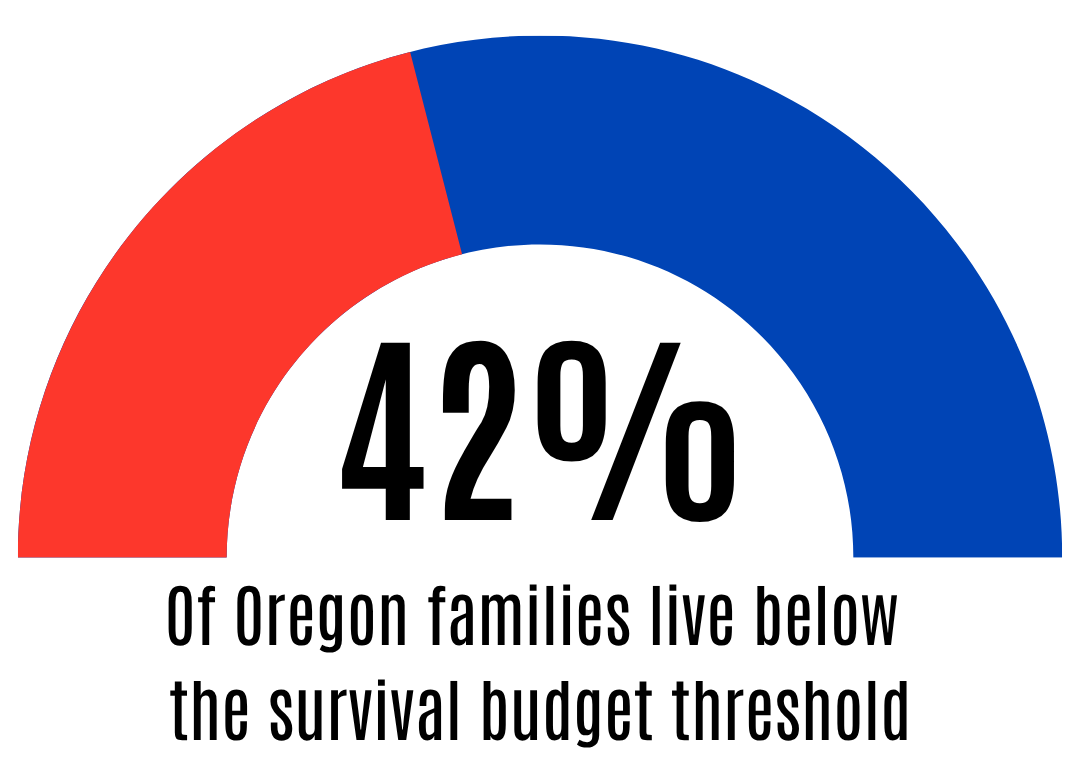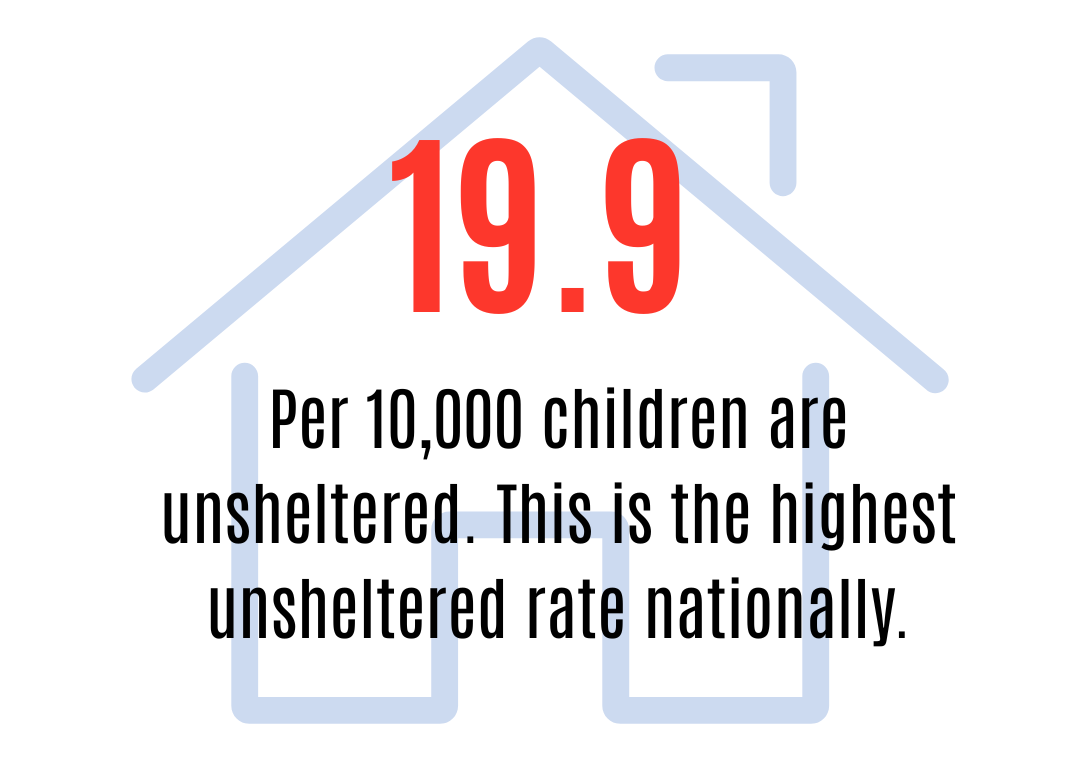Oregon currently ranks 50th in the nation for family homelessness — with 19.9 children per 10,000 living unsheltered. But we’re not accepting that future.
We’re going from #Worst2First — transforming Oregon from having the worst rate of family homelessness to becoming the national gold standard in prevention, housing, and care.
A Clear Path to Progress
Ending family homelessness in Oregon is possible — but only if we commit to smarter data, better policy, and responsible investment.
Better Data
Current systems fail to adequately capture the scope of family homelessness. We need stronger definitions and better tracking to build a focused, effective response.
Better Budgets
We must allocate funding to programs we know work — and oppose any cuts to family homelessness services. Upstream investment is essential.
Better Policy
Policy barriers such as excessive application fees, unregulated extended-stay facilities, and gaps in federal voucher implementation must be addressed.


The EFH Coalition
The Ending Family Homelessness (EFH) Coalition brings together leading organizations committed to a shared goal: ending family homelessness in Oregon.
Coalition partners include:
United Way of the Columbia-Willamette
OHSU-PSU School of Public Health
The Balmer Institute for Children's Behavioral Health
Portland Public Schools
Friends of the Children
Lines for Life
Disability Rights Oregon
Morrison Child and Family Services
Together, we are aligning data, practice, funding, and advocacy to create real change for Oregon families.
We Know How to Fix This
Eviction Prevention
Targeted financial and housing support to keep families in their homes.
Rapid Rehousing
Short-term rental assistance that quickly moves families out of shelters or cars into permanent housing.
Case Management
Coordinated care that addresses the underlying causes of homelessness.
Our Policy Asks for Oregon Leaders
1. Make Family Homelessness a Top Priority
Invest in prevention and rapid rehousing — and keep families together.
2. Allocate More Resources to Prevention
Prioritize upstream strategies to stop homelessness before it begins.
3. Improve What Works Through Data
Track impact and refine services using real outcomes — not guesswork.
The Impact of Ending Family Homelessness
For Families
-
Reduces childhood trauma
-
Promotes stability and opportunity
-
Creates pathways to long-term well-being
For the Service System
-
Eases demand across homelessness response networks
-
Clarifies focus for providers working with families
For Communities
-
Improves school attendance and graduation rates
-
Supports economic mobility and neighborhood stability
For Oregon
By acting now, we can set a national standard — and become the first state to eliminate family homelessness in a measurable, sustainable way.
How You Can Help
[Need clarity for action items]

